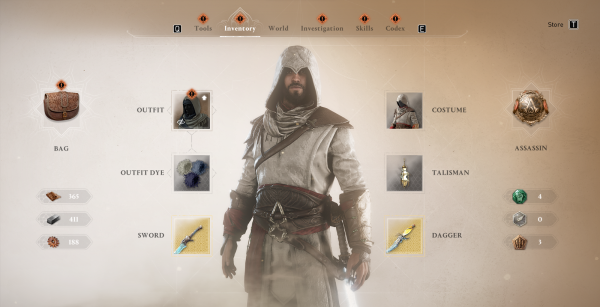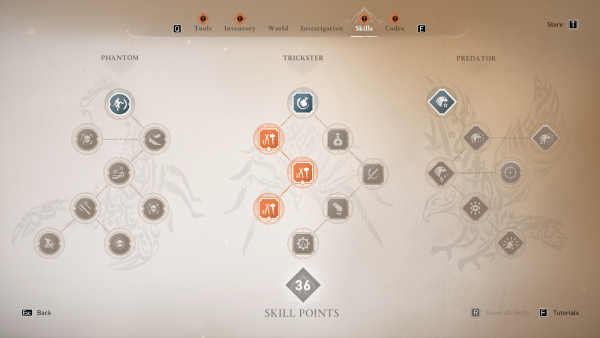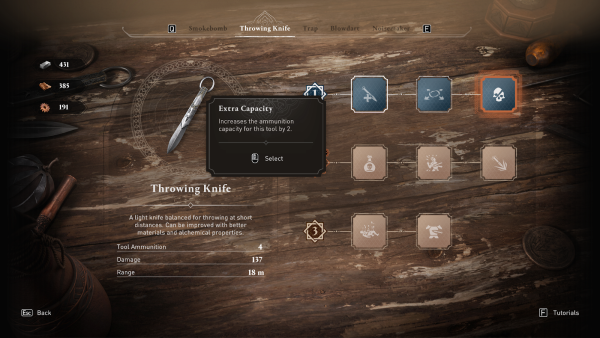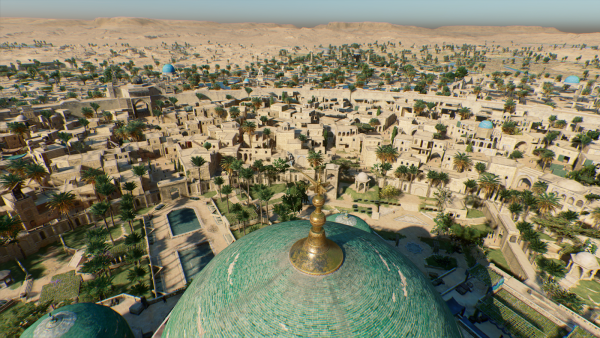There were many instances in my time as an Assassin’s Creed fan where I vowed to never purchase the next installment as the last handful of releases felt completely void of any charm the originals had.
I was skeptical about Assassin’s Creed: Mirage and honestly felt ready to be very disappointed again. After 20 minutes into Mirage, I felt like I was my younger self in my parents’ living room playing the old titles again.
Assassin’s Creed: Mirage is a single-player, action-adventure experience released on Oct. 5 and was developed by Ubisoft as the thirteenth main installment in the Assassin’s Creed series, with the core mechanics focused around stealth and fluent platforming.
Mirage has revived the nostalgia of the early Assassin’s Creed by reasserting their focus on stealth and meshed that with the utilization of newer mechanics like skill trees and an open world, allowing players to experience missions in whatever order and complete them however they chose.
If you are familiar with the three most recent games in the series: Origins, Odyssey and Valhalla, I am sorry to inform you with great sadness that Mirage uses the same engine.
When Origins released their core gameplay mechanics and implemented them into Odyssey and Valhalla, they were completely changing the core elements Assassin’s Creed fans had loved for years.
Ubisoft tried to incorporate a combat system that would focus on parries and dodging but the overall execution fell flat with every new release using it. If executed properly, the gaming experience would have been fine if the new combat system made it better but combat experience and engagement in the latest three games felt bland and it was brutal.
It felt like the series had finally fleshed out some of the game mechanics from Origins and Odyssey and finally figured out how to mesh them with the core elements that brought in players and immersed fans back in 2007. If Ubisoft continues with the tone that Mirage had set then Assassin’s Creed fans should be way more ecstatic about future installments.
The base game is $50 and the deluxe edition is $60, which is the common price point for games with only base editions to start at. Deluxe editions aren’t usually set at $60 and this is pretty unique for not only an Assassin’s Creed title but any triple-A title in general.
The entire storyline could take an estimated 20 hours to complete, making it one of the shortest installments in the history of Assassin’s Creed.
As a fan of the franchise, I still have my criticisms about Mirage.
Even though I had these complications and concerns with the narrative, gameplay and graphics I still had an enjoyable time as a long-time Assassin’s Creed fan. Perhaps people newer to the series won’t hold my same sentiment but fans of specifically the first game could expect a few easter eggs scattered around Mirage that might raise a smile built off nostalgia.
Narrative: 3/5
Experience the story of a younger Basim Ibn Ishaq, a central character in the previous installment, Assassin’s Creed Valhalla.

Basim is a rebel street thief troubled with nightmarish visions as he seeks to learn about his identity and traverses through the bustling streets of 9th-century Baghdad. After gaining attention from the Hidden Ones and the Order of the Ancients, he trains under the Hidden Ones and learns how to become a deadly assassin to seek justice, retribution and answers to his nightmares.
There are a large amount of cutscenes to illustrate the story but they lack any real substance that adds to the overarching context built by a few important scenes.
A majority of it was unnecessary.
I am a huge fan of the open-world style of games but the way missions could be tackled in any order caused the conflict in the story to not be as cohesive and it lacked a sense of immersion.
Honestly, the story’s plot is surprisingly underwhelming in general.
There was an interesting idea but it was executed very poorly. Judging by the length it takes to beat the game it’s easy to understand why this was initially set to only be DLC for Assassin’s Creed: Valhalla and not its own standalone game.
But Ubisoft is Ubisoft and they clearly saw it fit to make it a separate game and charge a separate price.
I was smart and rented the game for $15 a month using Ubisoft Connect+ because although it was a quick enjoyable experience for what I paid for — its appeal burned out quickly and was not worth the replay.
It’s a nice change of pace to run around the smaller map that Assassin’s Creed: Mirage has to offer though. It feels refreshing after Valhalla’s two egregious maps Ravensthorpe and Asgard, each map tripling in stature and were filled with nonsensical side quests around every corner. Mirage also has two maps, Baghdad and Alamut, but it feels like I can more intimately explore the story and the locations because of its smaller scale.
Gameplay: 2.5/5
When eavesdropping on targets, dissecting enemy patrols and pickpocketing from the bazaars of Baghdad, the gameplay feels at its best: fun and fluent.
Mirage had crafted the entirety of the game’s mechanics around stealthy playstyles, utilizing unlockable gadgets and outfits, quickly scaling buildings and escaping across rooftops.


Controlling the character felt far from perfect, but sometimes the mechanics would work as the developers intended and the gameplay would feel fun to immerse yourself in, making some parts feel smooth and exciting to navigate.
The quest lines have the possibility to softlock your game from being playable, the actual combat outside of assassinations was pretty lackluster and the movement feels as cinematic as it is clunky and lethargic.
The graphics look great and run well on PC but it doesn’t mask the fact that controlling the character feels like thick molasses moving up a tree in the middle of winter— the parry and stamina combat system feels the exact same as the previous three installments.
The guards or enemies assigned to defend the Abbasid Caliphate, also known as the Arabian Empire, are also some of the blindest and deafest NPCs I’ve had the pleasure of assassinating in a game.
These are the dumbest of the dumb.
Even while playing on the hardest difficulty I was easily able to infiltrate a building, stab and stash a guard’s body just meters away from other guards without raising awareness and complete the quests.
Graphics: 4/5
Despite the barren desert landscape between missions and destinations, the cutscenes provided some stunning visuals.

This game ran at a consistent 60 fps on high settings with my PC’s specs, an Nvidia GeForce GTX 1660 Super and 16 GB of RAM.
The streets of Baghdad are flowing with loads of people in every direction. Mirage captures the scenery and atmosphere of 9th-century Baghdad perfectly. Historians are known to assist Ubisoft in creating accurate depictions of historical periods and figures.
Assassin’s Creed has always been good with the historical aspect of their games, setting the tone of the scene with its landscape and the application of it all to assist in telling a captivating story.
I give Assassin’s Creed: Mirage 3 out of 5 stars for the story’s narrative, 2.5 out of 5 for the gameplay and 4 out of 5 for the graphics. I rate the game 3.5 out of 5 stars overall. There were a lot of negatives that I had to pick with the game but I enjoyed my overall experience.
Assassin’s Creed: Mirage is currently available on PC, Xbox Series X|S, PlayStation 5 and Amazon Luma.




Spencer Lorraine • Dec 14, 2023 at 12:54 am
The game is trash. Very disappointed. 9 century Baghdad? Really?